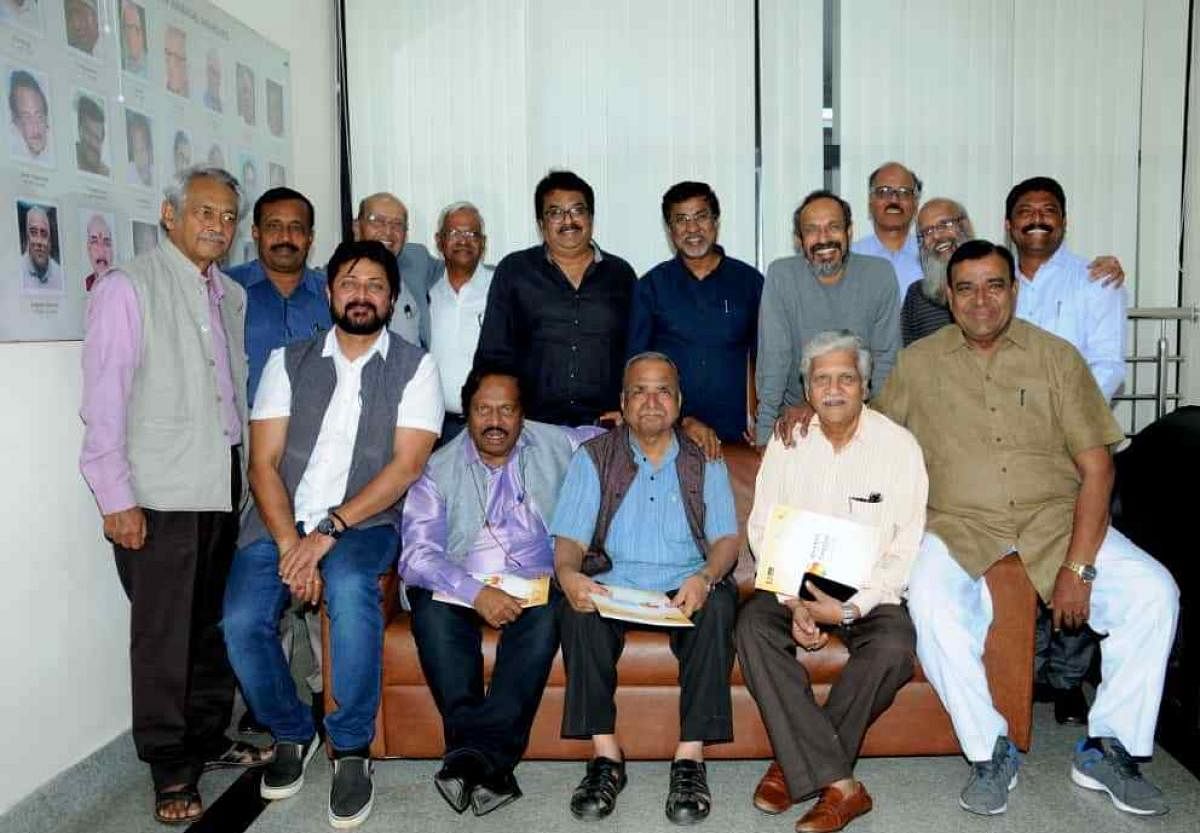
The 12th edition of Bengaluru International Film Festival (BIFFes), that will be held from February 26 to March 4 at PVR in Orion Mall, Rajajinagar and a few other venues across the city, will showcase over 250 films.
The festival is curated around the theme ‘Indian musical tradition in cinema.’ The various sections in the festival will look at how music was used for social reformation and how cinema uses music. Popular singers and musicians will be a part of panel discussions on the same subject.
The festival will have special films from various regional languages of Karnataka, Kerala, Tamil Nadu and Assam. Biopics on thinker-musician Pandit Rajiv Taranath, musician-artist Helen Reddy, Kannada writer S L Bhyrappa, Kannada playwright and Jnanapith awardee Prof Chandrashekar Kambar and legendary cinematographer V K Murthy will be screened.
President of the Karnataka Chalanachitra Academy Suneel Puranaik, who took charge in the first week of January, says conceptualising and designing the entire film festival in just under 50 days has been a challenging task. “We have roped in and involved members of the directors and producers’ associations and film and television artists to ideate for the festival. We thought it was important to incorporate the suggestions of people from all walks of life,” Suneel told Metrolife.
He also points out that BIFFes will go green this year. “We will have online registration and will not use plastic in any form. We have created a section called Film Bazaar where the best of Kannada films will be screened to a global audience. We have also made sure that more than 50 per cent of the jury members are women. This will add a new dimension to the whole process,” he added. He said that films will be screened at Navrang theatre, which is an 800-seater auditorium, and at Suchitra Film Society and Kalavidara Sangha in Chamarajpet.
Sharing his perspective Vidyashankar, artistic director of BIFFes, says the festival was always meant as a platform to initiate intellectual discussions on filmmaking and will continue to remain so.
“Members of the directors’ association are involved in academic activities. We will also have sessions that look at the supply side of films and we will look into ways of improving quality of films. There will be masterclasses, sessions of use of artificial intelligence in cinema, VFX, distribution side and use of digital platforms in promoting cinema,” explains Vidyashankar.
Members of the directors’ and producers’ association who were a part of the ideation process for BIFFes are thrilled that the academic character of the festival has been retained. Director T S Nagabharana feels that the purpose of every film festival is academic.
“These festivals must benefit students of cinema and by students, I mean anybody who has a keen interest in filmmaking. Film festivals showcase a variety of regional films that give one a peek into the culture, thought process and craftsmanship of directors who make these films,” says Nagabharana.
B Suresha, filmmaker and president of Suchitra Film Society, points out that the BIFFes was first hosted by Suchitra Film Society for four years, before it was handed over to the state government. “This is a festival that every member of the film fraternity looks forward to attending. What one gets to see during BIFFes is the latest trends in world cinema. The festival showcases not just commercial cinema but takes one through the best of arthouse films as well,” says Suresha.
He strongly feels that film festivals are not meant for entertainment. “It is an intellectual activity and serves as a forum for debates and discussion centred around filmmaking.
Films helps you connect and construct your own content inspired by what you have seen around you,” adds Suresha. Festivals like these give young filmmakers a chance to understand how the digital platform is used to make and market films, says Suresha. “It also gives you an insight into the latest technology used in filmmaking,” he adds.
Director P Sheshadri thinks there must be more such film festivals but adds in the same tone that there must be an independent body that has the liberty to take decisions related to film festivals and work connected the same.
“The process and planning of film festival take longer when there is the involvement of the government bodies. It would be nice if we could weed out too much interference from the government for such festivals,” feels Sheshadri.
The proposal to have an independent body was made by Suneel Puranik earlier this year after he assumed charge as the president. “The talks are underway for establishing an independent body,” Suneel sums up.